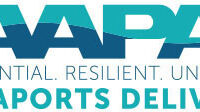Partnerships Make Green Investments a Reality for Seattle/Tacoma Ports

The Northwest Seaport Alliance (NWSA) is an innovative marine cargo partnership of the Port of Seattle and Port of Tacoma. Since our inception, we’ve learned that working together creates greater opportunity and outcomes for our ports and the communities we serve. Our maritime industry works together to keep global trade and our economies moving, and now more than ever, we’re being called to take action to reduce our industry’s environmental impact. Individually, the challenge is too great – by partnering together we can support the health and future of our global economy and environment.
The maritime industry is capital-intensive, requiring significant investments in infrastructure, technology and equipment. Therefore, NWSA gateway takes a long-term view when determining investments, considering both the economic and environmental impact of our decisions. We want our infrastructure to serve the ships and cargo of today and the maritime industry of the future. Similarly, our investments must consider impacts to surrounding environments and communities.
In 2008, our Seattle and Tacoma ports joined together with the Vancouver-Fraser Port Authority to establish the Northwest Ports Clean Air Strategy. This past year, we updated this voluntary commitment to include reducing maritime emissions to zero by 2050. After more than a decade of working together, we are well on our way to reaching our goals. Our gateway has exceeded our original targets and reduced diesel particulate matter emissions by more than 90% since 2005.
We are also expanding our green initiatives while making strategic infrastructure investments. With our private partners, we’ve invested $390 million to modernize Terminal 5 in Seattle to serve the largest containerships in the Transpacific trade. Beyond increasing cargo capacity and job opportunities, this investment includes shore power on the terminal to support vessels plugging into our hydro-powered electrical grid instead of burning fuel while idling at berth. Our commissioners and staff worked hard to advocate for this sustainability action, successfully partnering with Washington State to fund its installation. Terminal 5 will join other domestic and international terminals in our gateway that are already equipped with shore power capability. Through a partnership with private and public sector organizations, the NWSA is also welcoming our first all-electric yard equipment to Tacoma at the end of this year and investing in charging infrastructure that will enable our operations to become greener over time.
While we recognize the importance of making sustainability investments, we acknowledge these decisions come at a higher price tag. Partnerships across organizations and governments are critical to fund green projects. No single enterprise can do this alone. The transition to zero-emission technologies requires continued research, development, private-sector adoption and public funding at all levels of government, including port authorities, to support these more expensive investments.
The passage of a federal infrastructure package would be a welcomed action to helping our industry reach sustainability goals. Current proposals provide funding for most of the maritime supply chain; from construction funding through the U.S. Army Corps of Engineers, RAISE grants, Consolidated Rail Infrastructure and Safety Improvement Grants to Reduction of Truck Emissions at Ports. The NWSA’s priorities are also included in current federal proposals including funding for Technology Innovation and Climate Resilience in the maritime sector and more than $3 million in air quality grants for ports, which would support our Northwest Ports Clean Air Strategy goals.
National and international policy-making authorities also have a key role to play. Authorities could collectively move the industry toward zero-emissions through international and/or federal emission reduction polices. When matched with added funding streams, these policies would go a long way in supporting a consistent playing field across the industry and timely adoption of new, sustainable practices.
The maritime industry is feeling increasing pressure to modernize and decarbonize our operations. As we navigate these pressures, the NWSA recognizes that economic expansion does not have to come at the cost of environmental stewardship. Instead, we can invest and build world-class terminals that increase cargo throughput, support jobs, facilitate trade opportunities and achieve our green priorities. Through partnership and collaboration, we can share ideas and resources that save time and money and enable us to reduce our environmental footprint. The NWSA remains poised to partner and invest in the future of our green gateway and be part of the solution that supports the health of our global environment.
From the Front Lines is a new column for Seaports designed to share port leaders’ first-hand perspectives and insights based on their direct involvement in the Western Hemisphere port industry. If interested in contributing, contact Pam Maher at [email protected].




